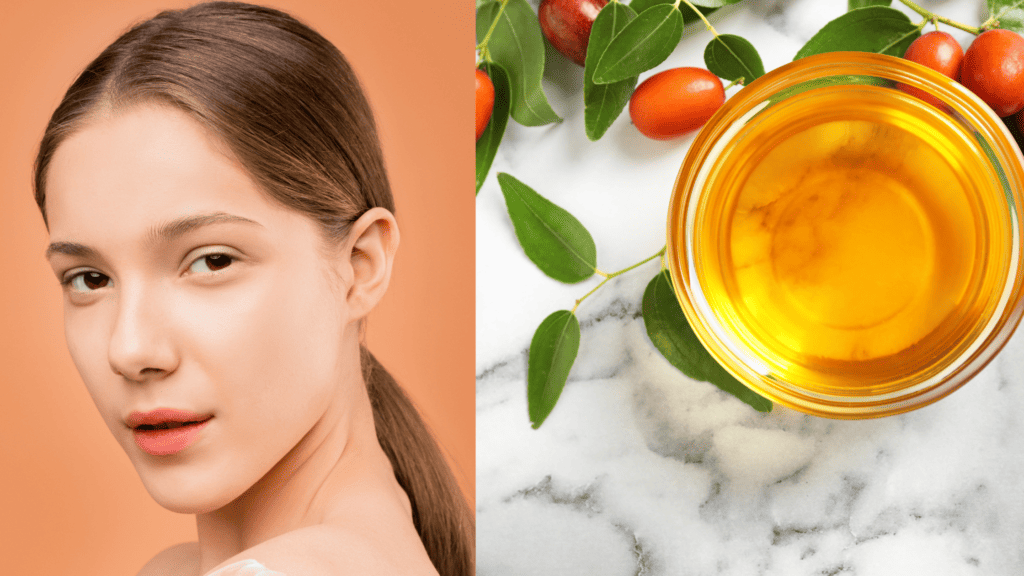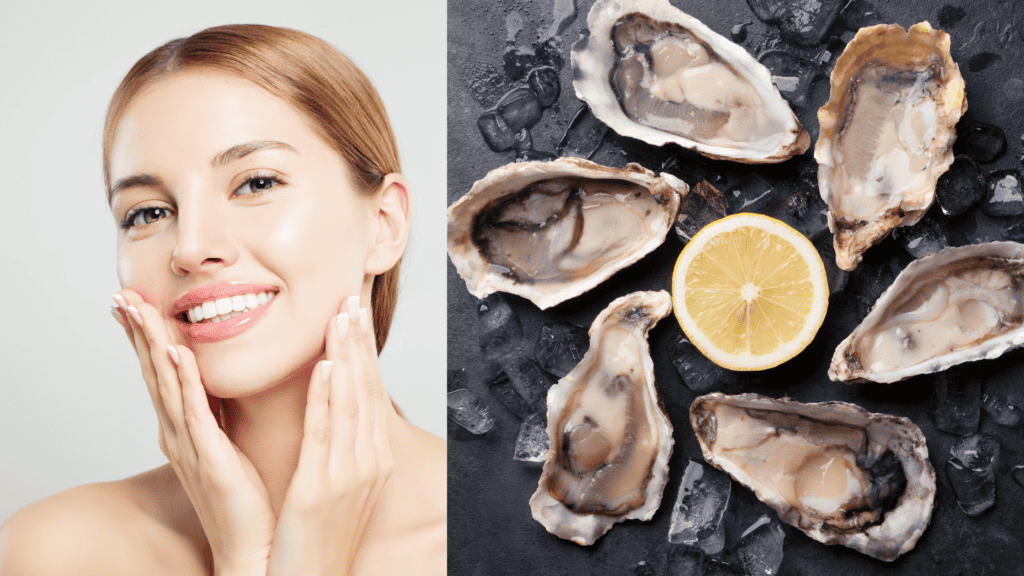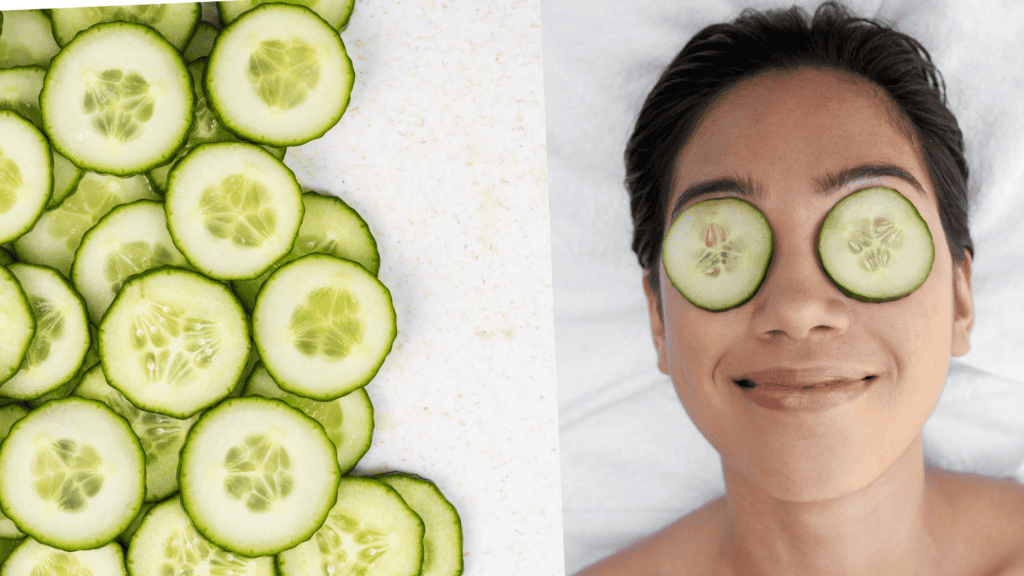If you haven’t jumped on natural plant oils to glow up your complexion, you are missing out on one of the best ways to keep your face hydrated and wrinkle-free. No amount of the mast premium beauty products would replace oils in my routine. They are often all I use, except natural mineral sunscreens.
Plant face oils are as effective on oily skin, where they can help regulate sebum production, as on dehydrated, average, or sensitive skin. If you don’t know where to start, look at these seven great oils!
What Are The Benefits of Natural Face Oils?
Plant oils are beautiful, natural moisturizers with many benefits for the Face, skin, and hair. They soothe, hydrate, and protect the skin due to their numerous nutritious plant properties.
Scientific research papers show what people have known for centuries regarding oils’ fantastic benefits to the skin.

Plant oils are among nature’s finest ingredients. There are no chemicals, fillers, or binders, just pure Oil pressed from a dazzling array of nuts, seeds, and fruits. No wonder many of these oils are referred to as liquid gold!
Although using oils on your Face can seem daunting at first, you will be blown away by their incredible ability to anti-age, heal, restore, and rejuvenate your skin when you begin to use and understand them.
Starting slowly and finding those oils that suit your needs is essential when you are new to oils. Here’s a list of seven oils that are a great starting point.
The Best Face Oils For Youthful Glowing Skin!
Start with Jojoba or Argan oil, as they are lightweight, don’t have a noticeable scent, and are easily absorbed into the skin.
- 1. Jojoba Oil.
- 2. Argan Oil.
- 3. Prickly Pear Seed Oil.
- 4. Rosehip Seed Oil.
- 5. Hemp seed Oil.
- 6. Sea Buckthorn Oil.
- 7. Coconut Oil.
The Skincare Benefits Of Jojoba Oil.
Jojoba oil is a great oil to use daily; it is inexpensive, goes on quickly and easily, and is fast absorbing. Even if you grow to love other oils, this is one staple that you always need.

Jojoba oil has incredible skincare benefits; use it daily to soften the skin and for its anti-aging properties to help with lines, wrinkles, and blemishes. The non-toxic, hypoallergenic, and anti-inflammatory benefits of Jojoba oil can help with irritated skin conditions and acne.
Buy jojoba oil for its versatile nature for all your skin needs; it mixes well for DIY skin serum recipes; use it for face massages and daily skin and body care.
Please read this post for the best ways to use Jojoba oil to glow up your skincare!
The Skincare Benefits Of Argan Oil.
Argan Oil, a top-rated oil, is native to Morocco and comes from the Argan Tree kernel (Argania Spinosa L.)
It would have been difficult to ignore this Oil in the last several years as it made its way into creams, lotions, hair conditioners, and serums. So what about Argan oil, and is it worth the hype?
Answer yes; Argan Oil is a pale, soft oil, easily absorbed, lightweight, with a mild nutty aroma barely noticeable. It is an easy, daily oil used as you would a serum.
Argan oil is high in vitamin E and fatty acids, 80% of which are unsaturated. It works best before a moisturizer, where it helps build up the skin’s lipid layer.
Native to Morocco and used for centuries as a food source, Argan oil is applied to the skin to protect it from sun damage. Use an SPF always on top of oils.
Argan oil has antibacterial, antifungal, and antioxidant properties that help heal minor cuts, scrapes, and skin infections. It can also help soothe acne and atopic dermatitis.
The high quantity of vitamin E in Argan Oil significantly increases skin elasticity, making Argan Oil great for anti-aging.
The more supple the skin, the less it wrinkles and forms stretch marks.
Choose Fair Trade Argan Oil.
The popularity of Argan Oil has given rise to many women’s cooperatives, allowing women to have some financial independence and a form of working community outside their traditional roles.
As demand has increased, more effective commercial methods have arrived that often threaten the traditional production of Argan Oil and cause concern over the deforestation of trees.
For this reason, always check that your Oil is fair trade. It is often not enough to see if this is written on the bottle, as many brands are fair trade but haven’t been officially certified, so dig a bit into the company that produces the Oil you choose.
The Skincare Benefits Of Prickly Pear Seed Oil.
Prickly Pear seed oil is a light, mildly scented Oil hugely popular for its anti-aging properties.
It comes from the Prickly Pear Cactus seeds Opuntia Ficus-Indica L., also known as Barbary fig. One of the most expensive oils on the market, it takes eight tonnes of cactus pears to produce one liter of Oil, but its many benefits make it worth every penny.
If you like Argan Oil, you’ll probably love Prickly Pear seed Oil. It has three times the vitamin E of Argan Oil and the highest Vitamin E content of all the carrier oils, making it an anti-aging powerhouse. It is also more sustainable than Argan Oil.
Prickly Pear seed oil is a non-comedogenic Oil containing vitamins E, A, D, and K, giving it antioxidant and anti-inflammatory properties. This Oil has skin renewal and recovery benefits.
Prickly Pear Seed Oil is high in linoleic acid, giving it a serum-like quality, easily absorbed, and mild and soothing skin. Non-greasy, it is also great for hair and scalp too.
The high Vitamin E content makes this Oil highly stable and oxidant-resistant.
Prickly Pear Seed Oil contains polyphenols, making it a free radical scavenger beneficial for uneven skin tone, hyperpigmentation, acne, rosacea psoriasis, and eczema. It is a highly robust and potent anti-aging oil that can promote collagen production.
Choose Prickly Pear oil if you want a mild but effective anti-aging oil.
Prickly Pear contains phytosterols. Collagen production slows down with age, but phytosterols slow this process and encourage new collagen production, stimulating cell turnover and production and giving skin a younger, plumper appearance.
The Skincare Benefits Of Rosehip Seed Oil.
From the Wild Rose Bush (Rosa Moschata or Rosa Rubiginosa), Rosehip seed oil has fantastic anti-aging properties; Kate Middleton said she used this Oil, and sales went through the roof.
You may also come across Rosehip Oil, an oil with combined seeds and fruit instead of just the seeds. Interchange this with Prickly Pear seed Oil, as they have similar properties.
Rich in essential fatty acids, linoleic, and Oleic. It contains beta-carotene and vitamins A and E.
Rose Hip Oil penetrates deeply into the skin, improving cell membranes and stimulating collagen production.
It is fast-absorbing, has a light scent, helps smooth and firm the skin, and is one of the best oils for rejuvenating properties.
Look for a Rosehip seed Oil that is organic and does not contain pesticides. To read more about this Oil’s excellent benefits for the skin, read this post!
Make a DIY anti-aging cleansing balm with Rosehip oil here!
The Skincare Benefits Of Hemp Seed Oil.
Hemp seed oil is a non-comedogenic oil made by cold-pressing hemp seeds from various Cannabis Sativa plants.
It is famous for cosmetic purposes for its moisturizing and skin-soothing benefits. The seeds, however, are 99.99% cleaned before pressing, ensuring they contain no cannabinoids. Therefore, hemp seed oil has no CBD or THC present in it.
Hemp Seed Oil is high in fatty acids and is an antioxidant-rich oil.
What Are The Benefits of Using Hemp Seed Oil on the Face?
It is rich in antioxidants and contains a 3:1 ratio of omega 6 to omega 3.
Antibacterial properties make this an excellent oil for acne-prone, pimply skin. This Oil is a game-changer for people with troubled skin.
Nourishing for all skin types, people with more normal skin may use this sparingly on troubled areas or mix a few drops into other oils or moisturizers.
Hemp seed oil is a dry oil that is non-greasy, highly absorbent, and makes an effective skin brightener.
Bonus: Hemp seed oil is excellent for regrowing and restoring thin, fragile hair.
Keep Hemp Seed Oil refrigerated after opening.
The Skincare Benefits Of Sea Buckthorn Oils.
Sea Buckthorn oil comes from the reddish-orange Sea Buckthorn plants. This Oil is extracted from both the pulp and the seeds and is reasonably thick and dense.
The seed oil is generally paler and more serum-like, but both contain high beta-carotene.
The deep orange color of Sea Buckthorn oil gives the skin a healthy glow. It doesn’t discolor the skin and is easy to wash off. However, it can stain clothing or bedding. Mixing it into other carrier oils, moisturizers, or creams is best.
Sea Buckthorn seed oil is lighter and more effective as a facial serum.
Seabuckthorn is a nourishing Oil high in carotenes, tocopherols, and phytosterols and is rich in fatty acids, omega 3,6 and 7, and vitamins C, B1, B2, and K.
It promotes cell rejuvenation, assisting in anti-aging benefits.
Sea Buckthorn oil suits irritated or inflamed skin, eczema, rosacea, psoriasis, dandruff, and sunburn.
This Oil helps promote skin elasticity for firmer, glowing, and smoother skin.
Bonus: It is another oil with significant hair smoothing and rejuvenating properties for thicker, healthier hair growth.
Refrigerate Sea Buckthorn oil after use; it tends to be unstable and can become rancid more quickly than other oils. Keep that in mind when looking at what size bottle to buy.
The Skincare Benefits Of Coconut Oil.
Coconut Oil is an edible oil high in saturated fats. Solid at room temperature up to 78%, it is a white, sweet-smelling, moisturizing oil. It comes from the kernel meat of the coconut palm (Cocos Nucifera).
No list of face oils is complete without coconut oil for its unique, versatile nature.
Coconut Oil is very popular as a cosmetic oil, but it has a comedogenic rating of 4, meaning it can clog the pores on people’s faces with more sensitive skin. It’s not for everyone as a face moisturizer, but you reap the benefits of it as a cleanser and all-over body moisturizer.
The Benefits Of Coconut Oil For A Natural Skin Routine.
Coconut oil is rich in fatty acids, containing 47% Lactic acid and capsylic and capsic acids, giving it antimicrobial and antifungal properties.
A high level of antioxidants makes this an anti-inflammatory oil that is soothing and healing for the skin.
Rich in saturated fat means this is a highly stable oil that doesn’t go rancid quickly and stores as a virgin, unrefined Oil for 2-3 years in a cool, dark place. Safe to use on skin, around eyes, and mouth.
Coconut oil has a natural SPF of around eight but is not suitable as a substitute for sunscreen. It is highly soothing on sun-damaged or otherwise irritated skin.
Coconut Oil is versatile and nourishing, a beautiful white oil that smells, feels, and tastes fantastic. It should be a staple in any Green beauty routine. Look for cold-pressed, virgin, organic, unrefined coconut oil, and you’ll wonder how you managed without it.
Please read this post to find the best ways to use Coconut oil in your beauty routines!
Conclusion.
There are many other excellent, beneficial oils to discover, but these are a good starting point. Once you have experienced their incredible benefits, there is no going back!
Do a patch test on skin or hair before using a new oil or product, and consult a dermatologist as necessary.
This post contains affiliate links. If you purchase through these links, we may receive a small commission. That does not affect your sales.
Glowitgreen.com is a member of the Amazon affiliate link program.




